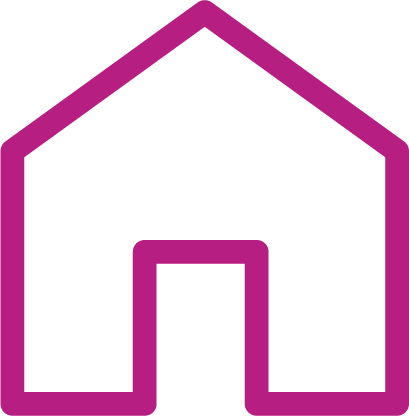The NHVRC used data from 17 models recognized as evidence based by the Home Visiting Evidence of Effectiveness (HomVEE) project to create a national profile of home visiting in 2023.
National Profile
Race
3% American Indian Alaska Native
3% Asian
24% Black
<1% Native Hawaiian Pacific Islander
58% White
7% Multiple
5% Another race
Ethnicity
33% Hispanic or Latino
Caregiver Education
22% No high school diploma
Child Age
40% <1 year
40% 1-2 years
20% 3-5 years
Child Insurance Status
85% Public
11% Private
4% None
Primary Language
77% English
19% Spanish
5% Another language
Notes
See the methodology section for information about the National Profile’s data sources.
Examples of “Another race” include Afghani, Bangladeshi, Brazilian, Cameroonian, Colombian, Honduran, Indian, Indigenous from Latin America, Middle Eastern, Mexican, Nigerian, Pashtun, Romanian, Syrian, Trinidadian, and Ukrainian.
Examples of “Another language” include Arabic, Afrikaans, Akateko, Burmese, Chalchiteco, Dari, French, Hebrew, Italian, Kurdish, Laotian, Nepali, Polish, Russian, Samoan, Somali, Tamil, Twi, Vietnamese, Yoruba, and Zapotec.
Maternal, Infant, and Early Childhood Home Visiting Program
The Maternal, Infant, and Early Childhood Home Visiting (MIECHV) Program demonstrates a significant federal investment in evidence-based home visiting(Source: MIECHV families are a portion of total families served by evidence-based models, but because of the way data are collected (aggregated across all models in MIECHV reporting, with promising approaches included), the overlap between model data and MIECHV data cannot be determined.)Go to footnote #>1 but does not account for all families reached. MIECHV awardees are required to report data annually to the U.S. Department of Health and Human Services about the families they serve. We contacted states, territories, and the District of Columbia to request this information, and most (48 of 56) shared it with us.
State and territory MIECHV awardees served 62,143 families and 58,756 children (Source: Data on children served are not publicly available, so this count is based on the data shared by 48 of 56 states and territories.)Go to footnote #>2 and provided 810,766 home visits in 2023. (Source: The models represented in the MIECHV numbers are Child First, EHS, Family Check-Up, Family Connects, Family Spirit, HANDS, HFA, HIPPY, MECSH, NFP, PAT, SafeCare Augmented, and promising approaches. Promising approaches include Following Baby Back Home, Health Start, and Team for Infants Exposed to Substance use Program.)Go to footnote #>3 Tribal MIECHV grantees served an additional 1,644 families and 1,664 children and provided 19,532 home visits in 2023.
Families Served Through MIECHV: State and Territory Awardees
In 2023, states were able to report on the number of virtual home visits provided by MIECHV programs. States provided 247,691 virtual visits, 31 percent of the total number of home visits in 2023.
Families Served Through Tribal MIECHV
Families Served by Indigenous-Led Organizations
Home visiting services were provided to families in 21 Indigenous communities through Tribal MIECHV funds in 2023. Families in Indigenous communities also receive home visiting through non-MIECHV-funded programs. For the 2024 Home Visiting Yearbook, we asked evidence-based models to identify programs led by Indigenous organizations, regardless of funding source. Possible examples of Indigenous-led organizations include community health representative programs, tribal councils, tribal health departments, tribal health clinics and centers, and urban Indian health projects. Nine models provided data on home visiting services provided by Indigenous-led organizations. (Source: Models that provided Indigenous-led organization data include ABC, EHS, Family Check-Up, Family Spirit, HFA, MIHP, NFP, PAT, and SafeCare Augmented.)Go to footnote #>4
In 2023, 5,520 families and 5,716 children were served by 168 Indigenous-led organizations. In total, 49,001 home visits were provided, including 17,993 virtual home visits. These data, coupled with information about families served by Tribal MIECHV grantees, begin to convey the reach of evidence-based home visiting in Indigenous communities.
Many partners work to expand home visiting services that meet the specific needs of Indigenous families. Family Spirit—the only MIECHV-approved evidence-based home visiting model created for, by, and with American Indian families—tailors its delivery approach to individual communities. Communities also adapt and enhance models, with developers’ permission, to fit families’ needs and to honor the cultural histories, traditions, languages, and values of Native nations. For example, Tribal MIECHV grantees have asked local grandmothers to mentor and support home visiting families, developed children’s books in Indigenous languages, and worked with model developers to modify enrollment procedures.



